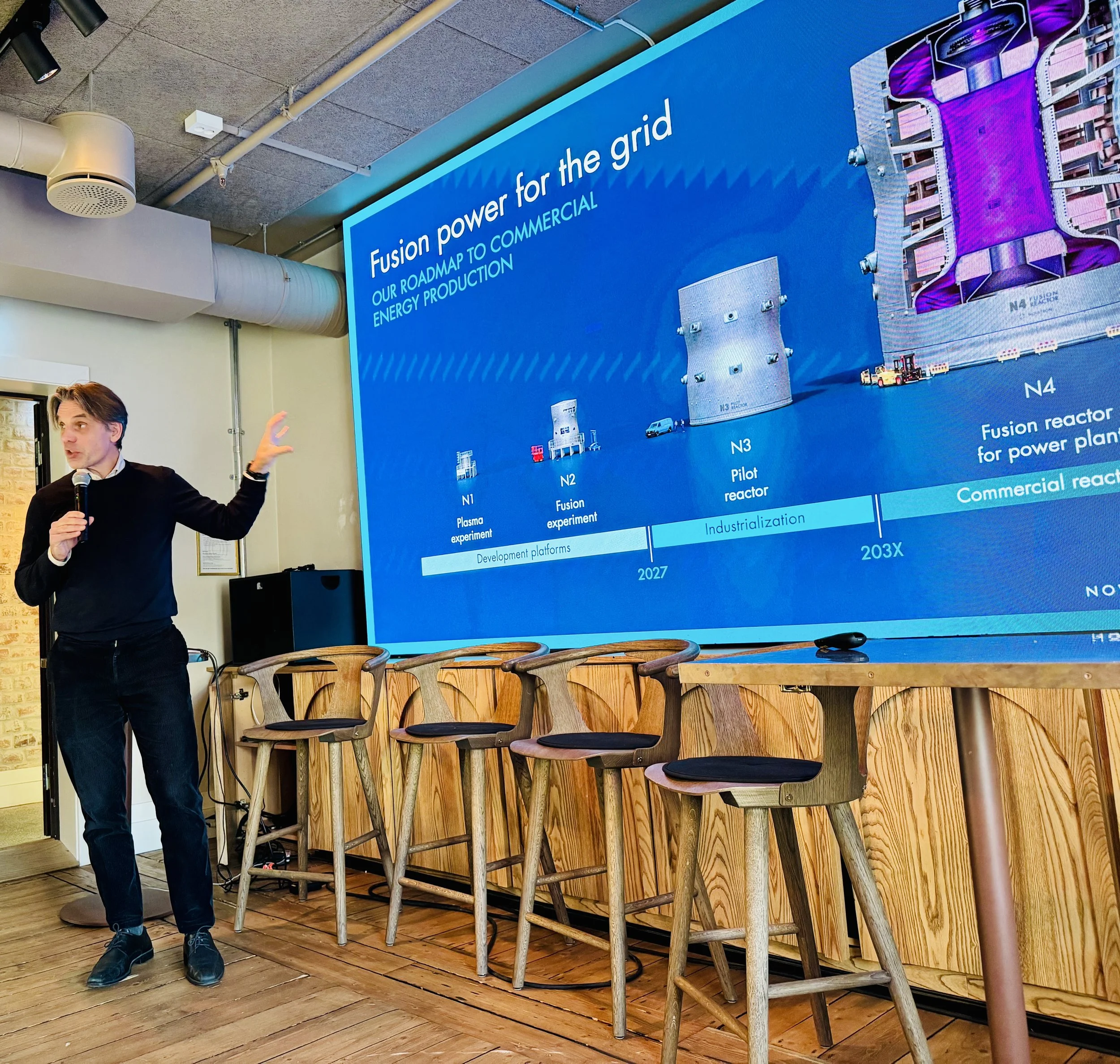The New Space Race: Fusion Energy
The late Stephen Hawking envisioned that fusion could fundamentally reshape the global energy landscape, offering an unparalleled solution to the climate and energy crises. The Swedish Novatron Fusion Group is now driving the Nordic fusion agenda to industrialize fusion energy.
The Nordic Fusion Forum was launched in Stockholm in October this year, with the purpose of moving the needle in key areas—including government frameworks, industry regulations, finance, and public-private partnerships—to help the region’s fusion sector prosper.
Building on the Nordic Fusion Forum, Novatron Fusion Group hosted the much-anticipated Fusion Frontier: How Close Are We? at The Conduit in Oslo in December, highlighting the importance of unity in addressing the challenges of fusion energy.
As leading industrialized nations refine fusion strategies, recruit top talent, and invest heavily in public-private partnerships, the event underlined how the Nordics must act decisively to remain competitive.
The Nordic Perspective: A Unified Approach to Fusion
Individually, the Nordic countries may lack the scale and resources to tackle the enormous challenges posed by fusion energy. By combining their strengths and resources, the Nordic countries can take a leading role in the global race for fusion energy. These types of collaboration are fundamental for overcoming technical and financial hurdles, but also for ensuring energy security and stability across the region.
Today, the Nordic countries share a connected energy grid, making cooperation in fusion energy development a strategic necessity. By working together, they can build a robust foundation for a new industrial ecosystem centered around fusion energy.
This unified effort would not only advance the technology but also create new high-tech jobs, catalyze innovation, and drive economic growth through clean energy investments across the Nordic region.
UK as a Role Model in Collaboration
In Oslo, Valarie Jamieson, Development Manager at The Fusion Cluster, highlighted the UK’s position at the forefront of the fusion industry, driven by the UK Atomic Energy Authority (UKAEA) and a burgeoning private sector.
Moving from an era of experiments to one of delivery by fostering collaboration, the UKAEA believes that fusion can be achieved faster. By mid-2024, the UK alone hosted 46 private fusion companies, reflecting a shift from research experiments to commercial readiness. Investment in the sector continues to accelerate, with an additional $1.2 billion secured this year alone.
Fusion is the energy of the future. While renewables will help us reach net zero, fusion will ensure we stay there, lifting billions out of energy poverty and meeting the surging demands of our digital age. Start-ups like Novatron Fusion Group are game changers, providing agility and innovation, Valarie noted. National labs have proven that fusion works; now, private companies are accelerating its commercial deployment.
A Future Nordic Fusion Industry
Erik Odén, co-founder of Novatron Fusion Group, highlighted the historical parallels between the current fusion race and previous industrial revolutions. He stressed the importance of cross-border partnerships as he envisions fusion not just as a power source but as the foundation of a new industrial ecosystem.
Erik pointed out that new regulatory changes, such as allowing fusion plants on repurposed industrial sites in the UK, are paving the way for progress.
These shifts provide a model for the Nordics to follow, enabling them to attract more global investment and establish themselves as leaders in the fusion industry. Deeply rooted in a commitment to sustainable energy, the Nordic region is positioned as a potential leader in the industry for fusion technology and future spinoffs.
Collaboration at the Core
Fusion is too complex for any single company, organization, or even sector to master alone Valarie emphasized.
This collaborative ethos is embodied by the UK’s fusion cluster, which includes Novatron Fusion Group alongside academic and industrial heavyweights.
The event’s panel discussion, moderated by Jørn Haanæs from Climentum Capital, reinforced the importance of collaboration. Experts highlighted key considerations for advancing fusion:
Technological Milestones: Jon Kåre Stene from Skyfall Ventures underscored that early investment in fusion technology would secure long-term benefits, predicting transformative advancements by 2040.
Energy Security: Valarie Jamieson linked fusion to national security, stressing its potential to reduce reliance on geopolitically sensitive energy sources.
Community Engagement: Erik Odén highlighted the importance of ensuring local communities share in the benefits of fusion energy projects.
Conclusion: A Call for Action
Despite remarkable progress, challenges remain. High development costs, regulatory uncertainty, and supply chain readiness must all be addressed. Collaboration among governments, private companies, and research institutions is essential to overcoming these obstacles. The Nordics, with their history of innovation and cooperation, are uniquely positioned to lead in this effort.
Moderator and Head of Investor Relations and Partnerships at Novatron Fusion Group, Philip von Segebaden, concluded the Oslo summit with a powerful statement.
Fusion energy will not only transform energy systems but entire communities. With the right investment and public support, this technology can deliver a sustainable, energy-rich future. The message for investors is clear: fusion energy represents both an unprecedented technological breakthrough and a strategic investment in the world’s energy future.



